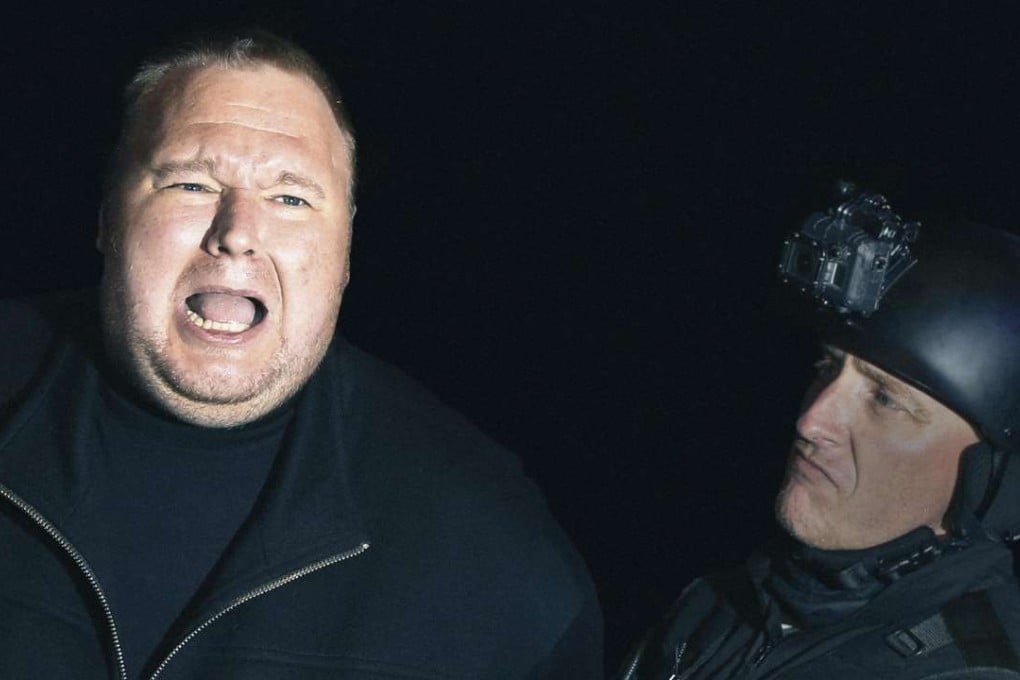The story behind Kim Dotcom movie about internet millionaire’s journey from Hong Kong to New Zealand and his legal battles
Kim’s personal story is Shakespearean in its ups and downs, says director of government-funded documentary that had its premiere in US this week as web entrepreneur fights extradition to face piracy charges there

When flamboyant internet entrepreneur Kim Dotcom launched his movie streaming website Megaupload in Hong Kong a decade ago, he had no idea his life would soon become as dramatic as the films he’s accused of pirating.
Dotcom’s life was once a whirlwind of flashy parties with scantily clad models and helicopter rides, but the German millionaire’s life took a turn for the worse after a 2012 dawn raid on his New Zealand mansion, which kicked off a five-year legal battle with US authorities.
Worthy of a movie? Yes. A New Zealand government-funded documentary, Kim Dotcom: Caught in the Web, has premiered at the South by Southwest (SXSW) arts festival in Austin, Texas – and reviews have been positive.

Despite tricking some Twitter users with a picture of movie tickets and the caption “I’m in Texas”, Dotcom wasn’t at the premiere. He’s still in New Zealand fighting extradition to the United States, where he faces piracy charges.